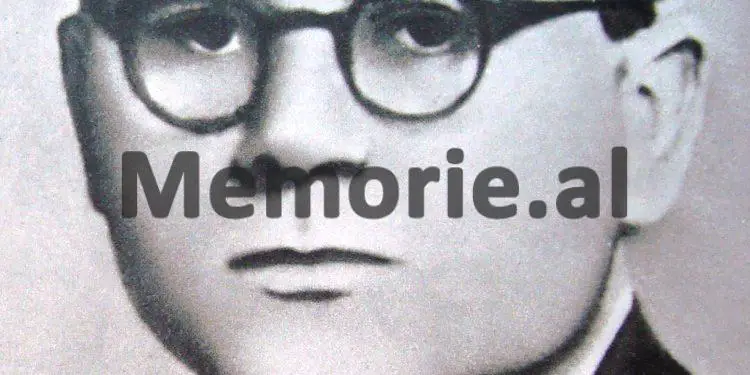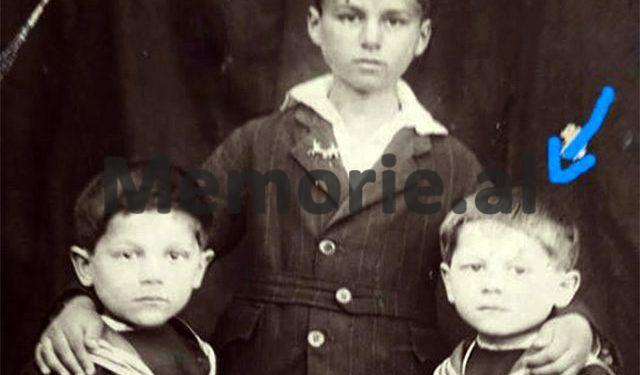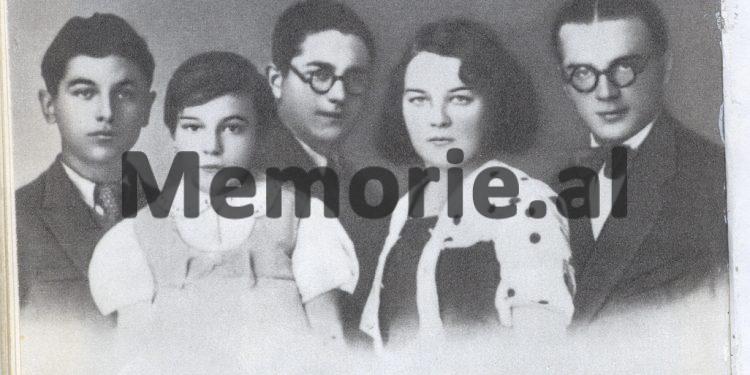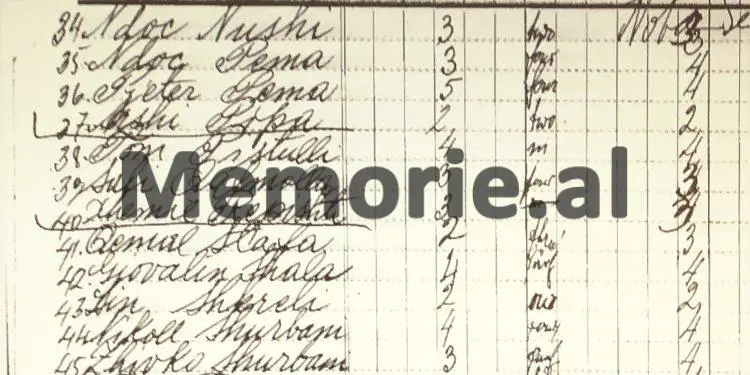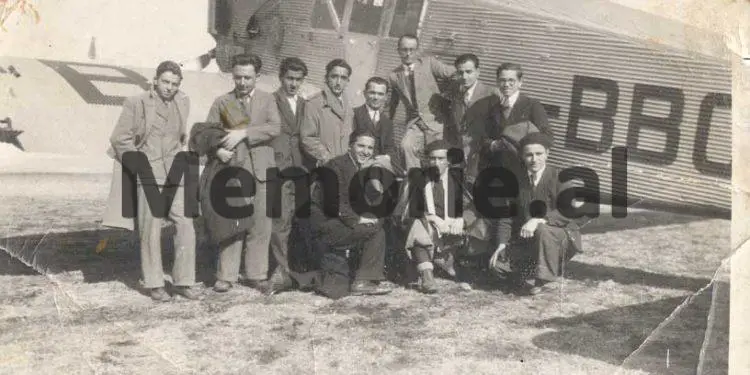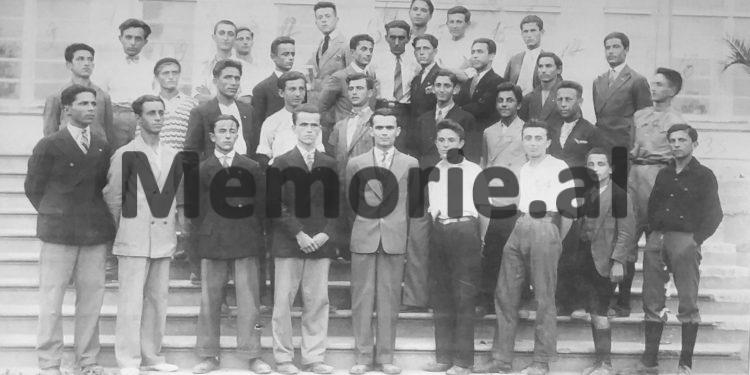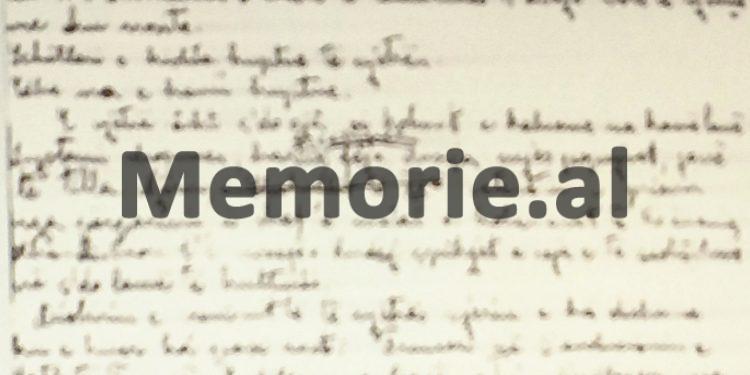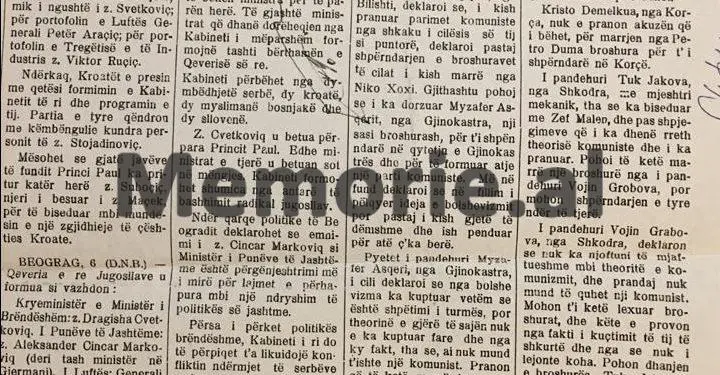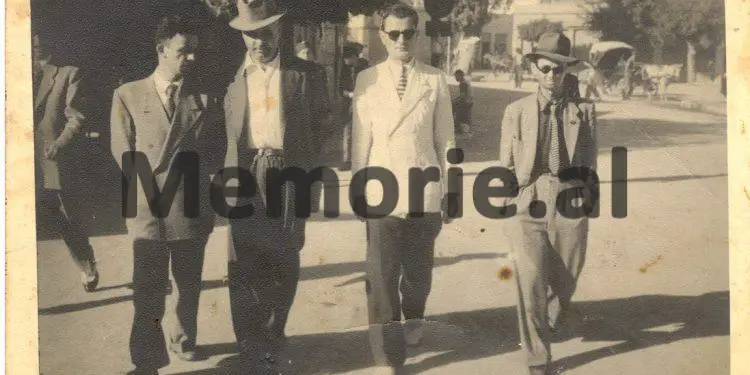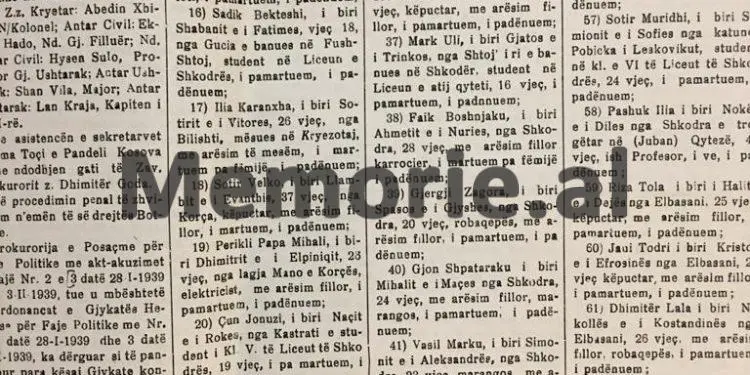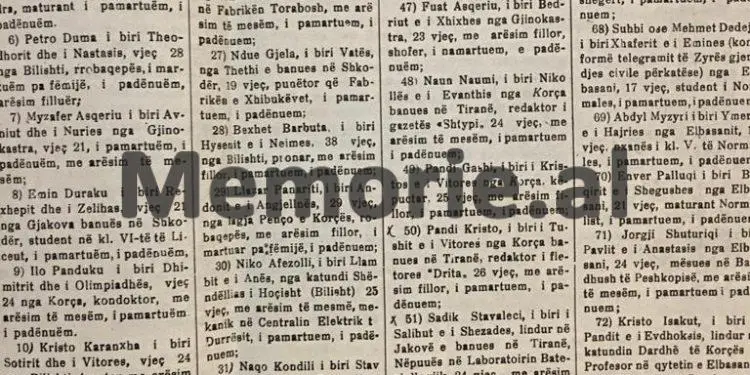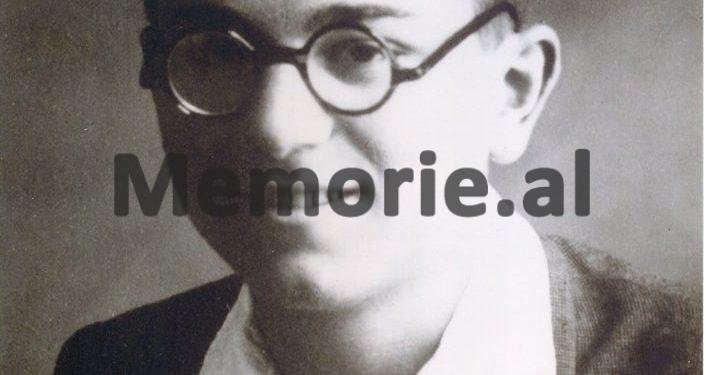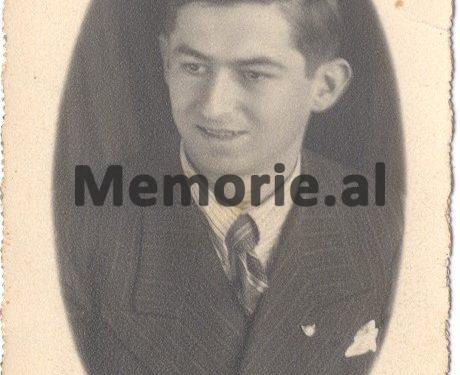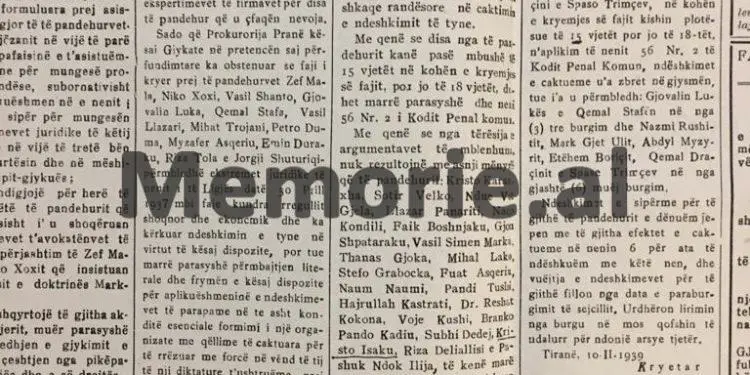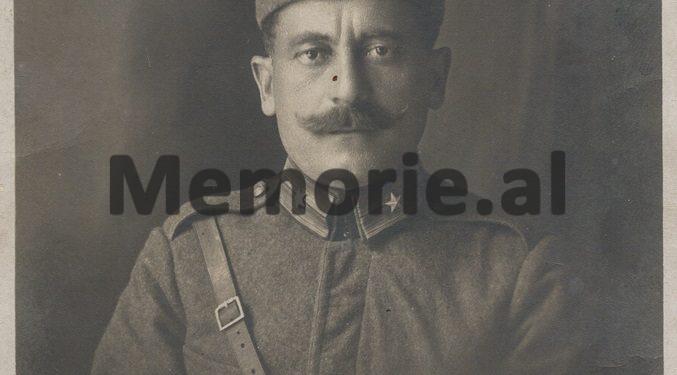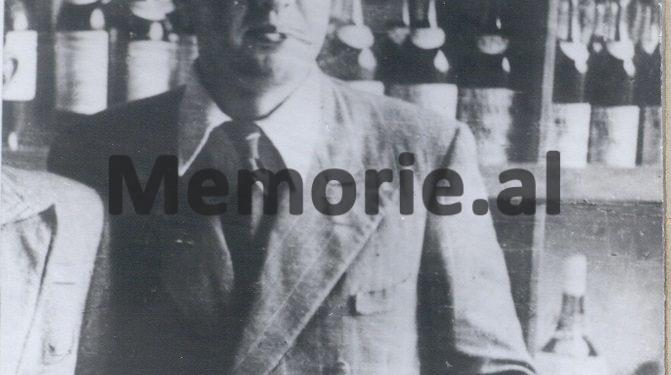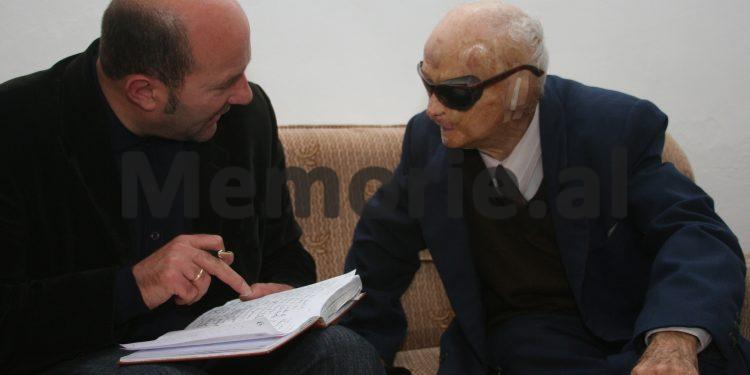Dashnor Kaloçi
Memorie.al publishes the unknown story of Qemal Stafa according to the testimonies of Riza Deliallis, originally from Shijak, who had a classmate Qemali during his time in the high school of Shkodra and then in that of Tirana, as well as in Elbasan where Qemali went as a delegate from Tirana to organize the communist movement and to bring the communist literature to the group that was formed in the city where he was born. Rare testimonies of Qemali’s classmate to his close friends and the attitude he held in the trial that took place in Tirana against 73 defendants in February 1939, who were accused of subversive communist activities, where only Qemali admitted that he was a communist and Rizai was the only one released from the courtroom as innocent!
May 5 marks 78 years since the day of the assassination of Qemal Stafa, one of the most famous and famous communists of the war period in Albania, a day which in his honor has been declared and symbolically commemorated as “Martyrs’ Day. “. Regarding that distant event of 1942, when the young communist boy Qemal Stafa was killed in circumstances still unknown somewhere in a suburb of Tirana, many hypotheses and suspicions have been cast, which have not been clarified and clarified even today. to this day. Which were made public only after 1990, when the communist regime in Albania collapsed and various people, even those who were with Qemali in the last moments of his assassination, have given their variants and versions about that event. , trying to shed some light on the great enigma… ?! One of those who has known Qemal Stafa closely is Riza Xheladin Deliallisi, from the city of Shijak, one of his closest friends and comrades since the time of school in the high schools of Shkodra and Tirana, as well as the prison, I the only survivor of the 73 defendants who appeared in the famous trial in February 1939, who recently told us all the unknown sides of that trial that was never made public during the years of the communist regime. of Enver Hoxha, or worse was manipulated by the official propaganda and historiography of that time.
Mr. Riza, in short, what is your origin and when did you first meet Qemal Stafa?
My origin is here, in the city of Shijak, where our generation of many generations of Deliallisi lived, where I was born on February 3, 1920. My first acquaintance with Qemal Stafa originated in 1934 when both we continued the lessons in the classical gymnasium of the city of Shkodra. In that year I was in grade III of high school, while Qemali was two years ahead of me, in grade V.
Why did you choose that city to continue high school, when you were closer to Tirana?
In those years when I had to attend high school, my family was not well off and I was in danger of dropping out of school. But fortunately, at that time Shefqet Bekteshi, who was the son of my father’s aunt, Xheladin Deliallis, came to us here in Shijak. At that time, Shefqeti lived in the city of Shkodra and begged my father to take me with him to continue his studies at the high school in Shkodra. And so it was, I went to high school in that city and slept in a room with my cousin, Emin Bekteshi (Shefqet’s son), who was three years older than me.
Your friendship with Qemal Stafa in the city of Shkodra consisted only during school, or even more?
I met Qemali and stayed for hours not only at school but also in my free time, as he often came to the family of Shefqet Bekteshi, with whom the family of his father, Colonel Hasan Stafa, had a great friendship… This friendship and this close connection between the two families had been established since the early 1930s of the Zog Monarchy, when Hasani lived in that city, serving as head of the Shkodra Regional Recruitment Office. As I said above, Qemali often came to the Bektashi house with his sisters, who were also friends with the girls of that family, such as Emine, and others, whose name I cannot remember now.
But apart from you, who were Qemali’s closest friends in the city of Shkodra, so what was your close social circle at school and after it?
Qemali was a very loving, polite, and highly communicative guy with society and because of this, he had an extended social circle. But among his closest friends was Qemal Draçini. Also, one of Qemali’s other close friends was Ndoc Mazi, whom I had a classmate.
Did your friendship with Qemal Stafa continue even after his departure from the city of Shkodra?
My friendship with Qemali continued again in the following years, as I also left the city of Shkodra and came to attend classes at the high school in Tirana. Although Qemali was two classes above me, we kept company and often met even after free time. Our social circle also included many students who later made a name for themselves in the fields where they studied or the professions they chose in life. Among them, I can mention the famous doctors Maksut Dërrasa, Petrit Selenica, Qazim Bakalli, or the famous actor, “People’s Artist”, Sander Prosi, whom I had classmates in the gymnasium of Tirana. Although in 1937 I left the Tirana Gymnasium to attend classes at the Normal School of Elbasan, the occasion brought me to maintain my friends and meet again with Qemal Stafa, when he came to that city to spread communist ideas and to make propaganda in the group of communist youth of that city where I also belonged.
Who was that communist group, who made it up, and who led it?
As in some other cities in Albania, such as Shkodra, Korça, Tirana, Gjirokastra, and others, communist ideas entered and propagated in the city of Elbasan in the mid-1930s, which were initially embraced by young people. of schools and ordinary workers. Our communist group in Elbasan was led and led by Riza Tola, who worked as a shoemaker and was much older than us. The “Communist Group”, as we considered it at the time, consisted of Normal students and some simple workers such as Abdyl Myzyri, Suhbi Dedej, Kiço Kasapi, Mihallaq Gjinikasi, etc. At Riza Tola’s shoe store, we, the young communists of that group, often gathered and held various meetings and conversations about communist ideas, or exchanged books and that little literature with communist content and ideas that we could provide at that time from various sources.
Who first introduced you to communist ideas and who introduced you to that communist group?
For the first time, my classmate, Abdyl Myzyri, spoke to me about communist ideas. I lived in his house during the years I attended classes at the Normal School in Elbasan. I slept in a room with Abdyl and during the long conversations we had together in his spare time, he also talked to me about communism, giving me the relevant literature, which was banned at the time. Also, it was Abdyli who introduced me to the communist group of Elbasan, which, as I said above, was led by Riza Tola. Rizai received instructions and instructions from Qemal Stafa, who came from Tirana and held meetings with our communist group in that city.
Did Qemali often come to the city of Elbasan and how does he remember the meetings he had with you?
Qemali often came to the city of Elbasan, as he was born and lived there for several years with his family. Every time Qemali came to Elbasan, according to the orders and instructions were given to us by the chairman of our group, Riza Tola, we would gather at the bar where he had the shoemaker and there we would meet with Qemal Stafa. Our group consisted of about 15 people and Qemali and Abdyl Myzyri talked to us about communist ideas, where, among other things, Qemali told us: “Only communism will be able to overthrow the old capitalist order and save the Albanian people from the suffering it has introduced. the Zog regime ”. From the first meeting, Qemali met me warmly and told the friends of the group that we were both old friends from the time we continued high school in the city of Shkodra. In addition to propaganda, Kemal also brought us communist literature from Tirana and gave us the right instructions on how to preserve and distribute them to our highly trusted sympathizers. Among his main messages were: expanding the group and maintaining the conspiracy, as both our group and Kemal were personally under the constant surveillance of Zog’s gendarmerie. Based on this fact, for fear of persecution, Qemali returned to Tirana within a day and rarely slept in the city of Elbasan.
How long did the meetings of your group with Qemal Stafa continue in the city of Elbasan?
The meetings of our group with Qemali continued regularly, if I am not mistaken, until September 1938, when our group was arrested by the people of the Zog gendarmerie who, as I said, had been following us for a long time.
How do you remember your arrest and who was the first to be arrested by your Elbasan group?
My arrest came after my first close friend, Abdyl Myzyri, was arrested, who was taken by Zog’s gendarmes to his home. After his arrest, Abdyl was severely beaten by the investigator and he was forced to tell almost all the members of our group. So the gendarmes did not find it very difficult to identify us as members of that communist group and immediately came to arrest us all. As soon as I found out that Abdyl had been arrested, I immediately went to his house and took the two books, The Communist Manifesto and Economic Development, which were banned because they had communist content. A few minutes after I left there to hide the books, the gendarmes came there together with Abdyl, to do the house check. They asked for two books that Abdyl had told them we kept at home, but his mother, Mam Hajria (as we called them), was told, “Don’t check in vain, those books came and Rizai took them.”
But after that, were they caught?
They came to me and found me in the subject of Agricultural Work, which we were doing somewhere in a place not far from the school, with our teacher Vasil Stralla. When the three gendarmes and a civilian who accompanied them came to handcuff me, our teacher, Vasili, told them: “I will never allow you to take my student, whatever he has done. I will take him and hand him over to the school and if you want, eat him and take him there after talking to the school principal. ” And so it happened, the gendarmes came after us and arrested me at the school directorate, after presenting to the principal the arrest warrant signed by the commander of the Elbasan Gendarmerie, Major Gjush Deda. After I was arrested, I was taken to the investigator, where the commander of the Elbasan Gendarmerie, Major Gjush Deda, interrogated me.
The investigator also asked you about Qemal Stafa?
There they asked me about our group, how many people it consisted of, who the chairman was, how many meetings we held, what we talked about there, who came from Tirana, what instructions they gave us and other questions of this nature. I am asked more about Qemali, saying: “How many times did Qemali come to Elbasan, with whom did he meet, what did he tell you, what were the instructions and directives he gave them?”, Etc., etc. Based on what they told me, I realized that Qemali had also been arrested in Tirana, which was true, as we met in Tirana Prison (today Prison 313 near the Central State Archive).
Apart from you and Abdyl Myzyri, who else was arrested by your group in Elbasan?
Initially, all members of our group were arrested, such as Riza Tola, Subdi Dedej, Kiço Kasapi, Mihallaq Gjinikasi, etc., but then Kiço (in the 80’s Kiço Kasapi served as Secretary-General of the Council of Ministers in Tirana. Our note) and Mihallaq, were released for lack of evidence. While the rest of us, after being held for three or four weeks in the Elbasan investigation, was sent to Tirana.
During the time you were detained during the Elbasan investigation, were you tortured?
They also tortured us a little, but not as during the communist era, as I was arrested and held in a cell in 1948, but it cannot even be compared to that of Zog with that of Enver Hoxha, in terms of prison treatment.
When you were taken to Tirana Prison, who else did you find there who was known as communists, and under what conditions did they keep you?
At the Tirana Prison, at the time I was sent there, around October 1938, there were 73 people accused of communist activities, whom the Zog regime had arrested in several major Albanian cities. Among them were the main leaders of the communist groups of Shkodra, Korça and Tirana, etc., such as Zef Mala, Niko Xoxi, Qemal Stafa, Miha Lako, Vasil Shanto, Vojo Kushi, Sadik Staveleci, Riza Tola, etc. We, the 73 people who were arrested on charges of communist activity, had placed us in a large and special corridor, creating very good conditions for us. From the first day, they gave us: new clothes, sheets, blankets, hastra (clothes) and the food they gave us was extremely good and abundant. The prison authorities told us that King Zog himself had given the order to create those conditions, which was said to be of direct interest every day to the conduct of the investigations carried out there. Until the day we went to court, we were not allowed to meet with our families, but the family members were quite calm, as not only were we in good condition, but no one touched us all the time we were there.
Out of your group of 73 people, who were considered the most dangerous communist, both by you and by the authorities of the Zog regime?
Undoubtedly, Zef Mala was the leader of the group, followed by Vojo Kushi, Qemal Stafa, Qemal Draçini, Ndoc Mazi, etc. But Qemal Stafa had the greatest authority because at that time it was said that after his arrest, Zef Mala had shown all the members of the group.
Did you personally meet with Qemali while you were in prison and who were Qemal Stafa’s closest friends there?
I met with Qemali from the first day I was sent to that prison, because, as I said, we were placed in a large corridor. The closest friend Qemali was associated with almost all the time was Tuk Jakova. Likewise, in addition to Tuk, who was an extraordinary man and enjoyed the respect of all, Qemali was also associated with Vasil Shanton, Sadik Stavelec, and others.
Were there communist propaganda in prison and did the main leaders like Qemal Stafa, Zef Mala, Vojo Kushi, Sadik Staveleci, etc., have contradictions with each other?
During our time in prison, there was no communist propaganda, as we were under surveillance, but Qemal Stafa and others instructed us and encouraged us to take the position we had to take during the interrogation and when we went to court.
How much were you convicted?
I was able to escape unscathed and be released immediately after serving my sentences, only after the intervention of Kadri Kërçik (my aunt’s son) to the presiding judge, Abedin Xhiku, whom he had a friend. After the decisions were made, I was told: “Take your clothes and go immediately to my aunt in Tirana.” While all the other people who were convicted were sent to Mbreshtan in Berat, to a labor camp, from where they were all released after a few days when fascist Italy entered Albania.
But after your release, did you engage in communist activities?
Not only was I not accepted, but I found it difficult to resume the half-abandoned school due to the arrest, as I was listed as a communist and no one accepted me at school. My friend Suhbi Dedej and I were able to resume school only after an order given by the mayor of Elbasan, Ahmmet Hastopalli. He called us in the office and said, “You are not a communist, you are good boys and they have confused you in vain. Go to school now and learn well. After that, we not only resumed school but also took the class.
But after 1945, what did you do and how did your life go?
After 1945, I was appointed a teacher in the Shijak area, where I worked until 1948 when I was arrested for anti-communist activities. But after a few months, I was acquitted, giving me compensation, and I was appointed a teacher in Maminas. On one of those days, Enver Hoxha came there to visit, as agriculture would be collectivized. Enver also came to check on our school, where he praised me for my good work. After that, I was appointed the school director in Xhafzotaj, where I worked for 20 years until 1968. Then I was brought to Shijak, where I retired in 1975.
But in the Communist Party (and then in the ALP) did you try to be accepted as a member and were you invited on anniversary occasions to talk about Qemal Stafa and the famous trial where he was convicted?
Not only did I not try to be accepted into the Communist Party, but even if I wanted to, they would not accept me, as my uncles were shot by that regime, being accused of being enemies of that government. As for Qemal Stafa and the trial against us, I was never invited to speak on any occasion. That trial was apparently forgotten, as most of those who were there and received light sentences from the Zog regime, were later declared “traitors and enemies” by the communist regime of Enver Hoxha, and so on. ‘We could talk more about them.
Memorie.al
Follows tomorrow




